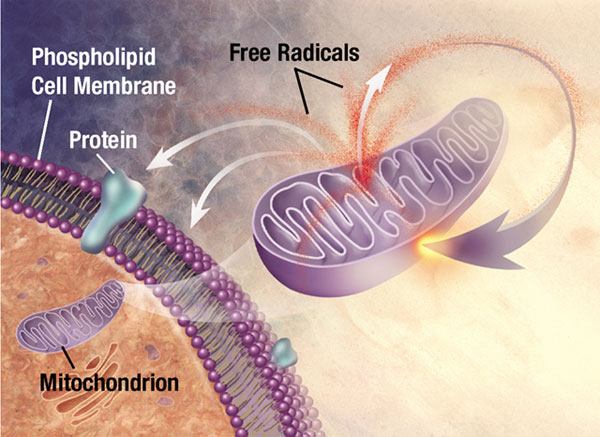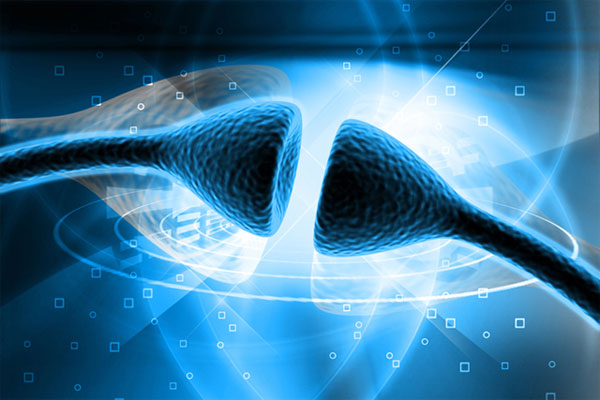Why do we need to sleep?
Statistically, each of us spends about 1/3 of our lives sleeping. The French Emperor Napoleon, the founder of Florence Nightingale, or British steelwoman Margaret Thatcher spent about 4 hours a day sleeping . For genius inventor Thomas Edison, this is a waste of time in life. Anyway, sleep is still an essential human need. So what is sleep? Why do we sleep and what if we don't sleep?
Why do we sleep?

Sleep can restore cells damaged by free radicals, products of metabolism
This question has puzzled scientists for many centuries and so far, no one has given a true answer but only four theories have been made.First , some researchers argue that sleep allows the body time to recover cells affected by free radicals (impurities produced during metabolism) after one day of activity. . It was found that during sleep, some genes will be activated to perform this recovery task. This hypothesis also explains why small animals (with high metabolic rate) will need more sleep. Typically, mice need to sleep 20 hours a day while giraffes or elephants need only 2-3 hours of sleep.

Sleep restores ATP, the energy supply to cells
The second hypothesis is that sleep helps the body replenish energy after a long day of consumption. One type of fuel, ATP (energy-carrying molecule), will be transported energy to where it needs to be delivered to the cell during the day and produce the product, adenosine. Decreased ATP levels, high levels of adenosine signal your body to go to sleep. In a demonstration experiment, scientists at Harvard University injected a drug that blocked the formation of adonesine for zebrafish and, as a result, slept less.

During sleep, the brain will be cleared of excess nerve connections
The third hypothesis suggests that sleep is the time to clean up the brain . During the day, we will constantly learn and absorb information continuously. This process forces us to constantly create new synapses that help nerve cells to be linked together and signals that can move smoothly. But space in the brain is limited, so sleep time is when excess synapses are cleaned up and reorganized, making the brain ready for the next working day.

Sleep will reflect the events of the day, serving to remember
Finally , during sleep, your brain may "re-play" the day's events to help memorize and learn to be "stored" longer in memory. In the demonstration experiment, the researchers tracked the brain of a mouse while it ran in the labyrinth. Later, when the mouse slept, they continued to monitor brain activity and found that the memories of the labyrinth were recalled by the mouse in sleep.
Other studies have also shown that we need to sleep to maintain cognitive abilities, communication, memory, creative thinking and flexibility. In other words, n leads play an important role in the development and protection of the brain . Besides, sleep is also the time when the body recreates and restores itself. Growth hormone is also secreted during sleep. This is an important hormone in the development of young children, and it also stimulates tissue regeneration in adults.
What happens if you don't sleep?

Lack of sleep seriously affects the ability of our brain and body to function. If you stay up all night, you will have symptoms such as discomfort, loss of flexibility, grumpiness and forgetfulness. After only one night without sleep, the concentration will be severely reduced compared to normal. If this habit is prolonged, the part of the brain that controls language, memory, awareness and emotions will be severely affected or even lost this ability. In fact, staying awake for 17 hours will reduce brain activity similar to the effect of 0.05% of blood alcohol concentration (equivalent to 2 glasses of wine). This is a limited alcohol limit for driving in the UK.
Studies have also shown that sleep deprivation often faces difficulties in responding to situations that require rapid reflexes and are unable to make reasonable decisions. So far, low sleep has led to many serious accidents, of international stature such as the Chernobyl nuclear disaster, the Exxon Valdez oil spill in the United States, the Three Mile Island nuclear power accident or the space shuttle explosion. Challenger.
Lack of sleep not only has a great impact on cognitive ability but also adversely affects physical and mental health. Sleep disorders can not only lead to apnea at night but also create stress and hypertension during the day. Other studies have also shown that insomnia also increases the risk of obesity due to appetite chemicals and hormones, weight gain created during sleep.
- The reason people have to sleep
- Sleeping a lot also causes illness
- Decode the phenomenon of saying dream when sleeping
- 5 reasons why you sleep more than 10 hours a day and still yawn
- 30 facts about sleep
- Sleep affects the color of the owl?
- How many times do you wake up during the night?
- What happens when you stop breathing during sleep?
- How is sleeping properly?
- Discover a special brain area that keeps you awake
- Let young people get enough sleep if they don't want to turn them into criminals later
- New recommendations about sleep time by age
 'Fine laughs' - Scary and painful torture in ancient times
'Fine laughs' - Scary and painful torture in ancient times The sequence of numbers 142857 of the Egyptian pyramids is known as the strangest number in the world - Why?
The sequence of numbers 142857 of the Egyptian pyramids is known as the strangest number in the world - Why? History of the iron
History of the iron What is alum?
What is alum?